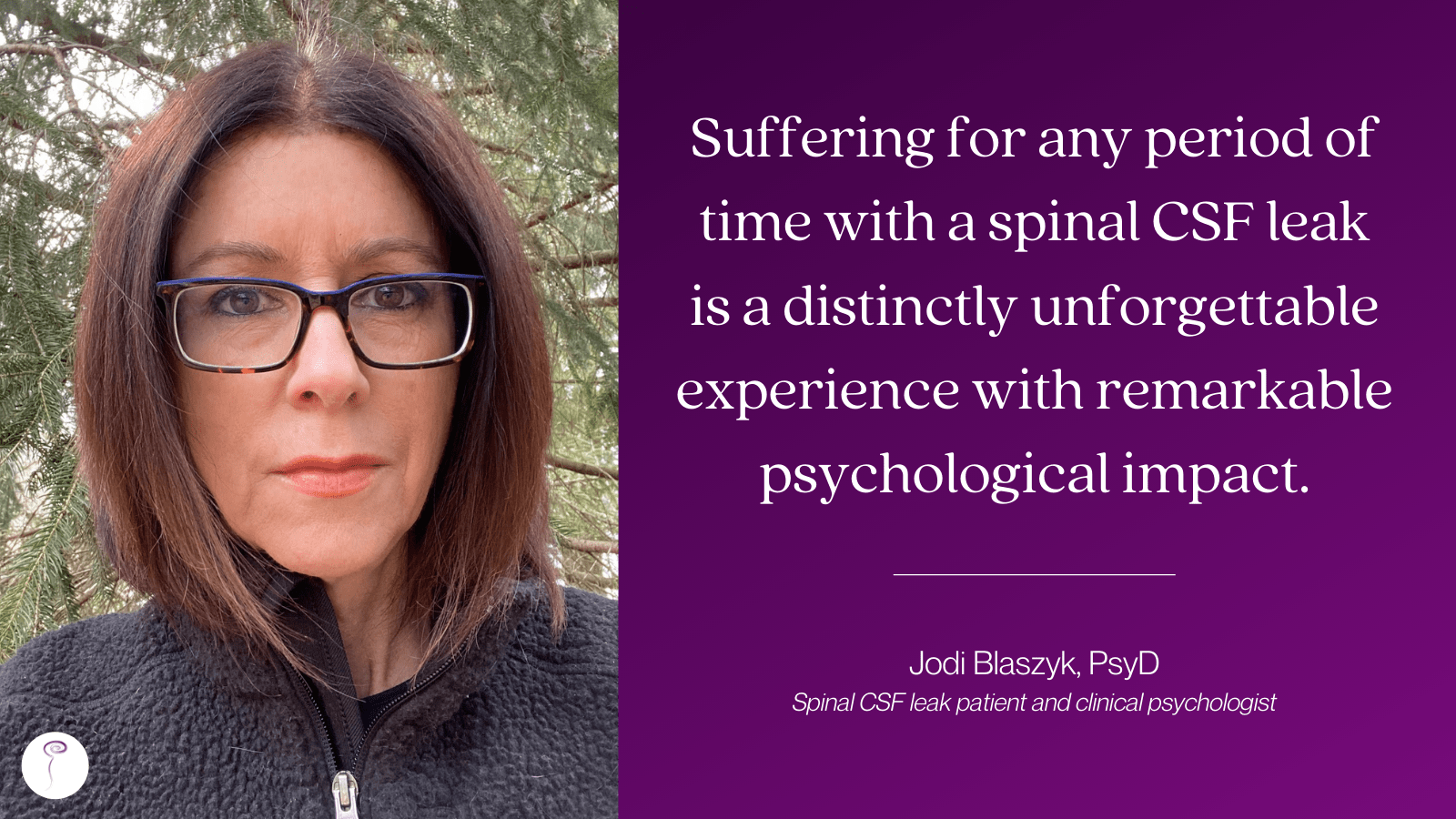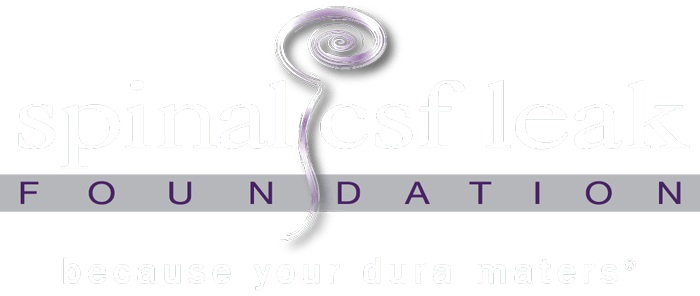Jodi Blaszyk, PsyD, is a spinal CSF leak patient and clinical psychologist. This week, as part of our programming for mental health awareness month, she shares her story with us and discusses a mental health concept she coined called ADAPT, for support in living with spinal CSF leak.

An emotional beginning
Like so many who have gone before me, my leak was both a physical and an emotional experience. My symptoms started shortly after I lifted a heavy chair and strained my back. Near the same time, I received word that a beloved pet passed away. I sobbed, overtaken with sadness. And after crying so hard, I could sense inside my head that something had gone horribly wrong.
Looking back, I wish I would have known that guarding my mental health was as important as the search for the repair of my spinal CSF leak. I know I would have suffered less in emotional terms, and perhaps even had a different outcome.
But over the many months that followed, my life was little more than surviving the day and looking forward to bedtime so that I could lay flat to relieve symptoms. When I tried to seek help, I was passed from one specialist to another, and it seemed like my mood declined with each new referral. I couldn’t accept what had happened to me. I longed for the days that I used to run, walk briskly in the woods, and easily manage a hobby farm. I lived in the shadow of doubt about all things. I lost my sense of humor, my optimism, and even my physical strength. At my worst, I wondered if I could really press on.
Gaining perspective
To complicate matters, when my leak began, I had just moved to a new job out of state and missed my family, friends, and farm life. Alone and in a new city, I often spent my evenings thinking about all of my losses. How could I have become a disabled person with questionable mental health over a period of only months? As a psychologist, I recognized that I was depressed, and it seemed ironic and ridiculous that in in my sadness, I was afraid to even cry due to fear that it would make my symptoms worse. After all, wasn’t that what had started everything?
This May—which happens to be mental health awareness month—marks four years since the onset of my spinal CSF leak. In those four years, I have worked hard to gain perspective on my experience. For me, this has involved radical acceptance of where I am, educating and advocating for myself, becoming flexible in my thinking and planning, and finding new ways to thrive within the boundaries of my illness. It has not been easy, but this mental shift has made a profound difference in my life, enabling me to focus on what I am able to do rather than what I can’t. It’s also helped me to stay centered amidst the day-to-day experience of living with a spinal CSF leak, from painful symptoms to the disappointments of highly anticipated treatments and the difficulties of medical travels.
Parallel journeys
My spinal CSF leak journey has not been linear, and at times it seemed like an emotional rollercoaster. I am not cured; however, I am improved, not only from helpful treatment, but attending to my mental and emotional experience as well. I recognize today that I remain on two parallel recovery journeys. My physical healing process is reliant on my mental wellbeing. And understanding this, I can sometimes raise my hands up to catch the air on the rollercoaster ride that is my spinal CSF leak journey.
Learning to ADAPT
I have come up with the acronym “ADAPT”—which stands for Acceptance, Diagnosis, Advocate and educate, Plan, and Thrive—to outline what I have learned in the process of attending to my mental wellbeing while living with spinal CSF leak. I hope it can be helpful for others.
All this week, the Spinal CSF Leak Foundation will be sharing information about each letter in the acronym as it relates to mental health and spinal CSF leak.
Click here to read about the first letter in the ADAPT acronym: Acceptance.
Click here to read about the next letter in the ADAPT acronym: Diagnosis.
Click here to read about the next letter in the ADAPT acronym: Advocate (and educate).
Click here to read about the next letter in the ADAPT acronym: Plan.
Click here to read about the final letter in the ADAPT acronym: Thrive.
Click here to read about what Jodi learned during her year of ADAPTation.
This content is provided for general informational and educational purposes only and is not intended or implied to be a substitute for professional medical advice, help, diagnosis, or treatment. If you think you have an emergency, please call your doctor or emergency services immediately. To find a mental health provider, you can visit the ADAA Find a Therapist directory. If you are in a mental health crisis, call the National Suicide Prevention Lifeline at 988 or reach out to the Crisis Text Line by texting HOME to 741741 to connect with a crisis counselor.

